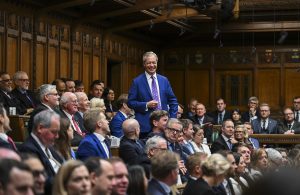On Monday (21 July 2025), Secretary of State for Energy Security and Net Zero Ed Miliband appeared in front of the Energy Security and Net Zero Select Committee alongside Permanent Secretary Jeremy Pocklington.[1] In this article, Brevia Energy dissects some of the key insights from the session and the implications of the Government’s energy strategy for industry stakeholders as Parliament enters summer recess.
Picking Up Pace
Opening with a reminder of the Government’s support for a broad portfolio of clean energy projects, from nuclear and solar to CCUS and hydrogen, Miliband’s message was clear: this Government intends to ‘drive forward at pace’ on the energy transition. Yet, the Committee appeared unconvinced of this urgency, pointing to the delayed outcome of the Review of Electricity Market Arrangements (REMA) as a source of investor uncertainty.[2] Miliband expressed the importance of making decisions that are both fast and right, remaining focused on ‘what the country needs’.
Persuading the Public
Miliband emphasised that this ‘need’ is Clean Power 2030. Responding to questions on community-owned energy projects, Miliband made clear that the Government would not prioritise grid connections for community-owned energy projects over those deemed critical to delivering the 2030 target.
Miliband also highlighted the Government’s commitment to electrification and energy-saving schemes, seen as key to shielding consumers from volatile gas markets. However, the Committee voiced scepticism about whether this economic narrative was cutting through to the public, with fraying cross-party consensus on Net Zero 2050. Earlier this month, Reform’s deputy leader Richard Tice wrote to major renewable developers, warning that his party would ‘reassess all net zero-related commitments’ and ‘strike down all contracts signed under AR7’ (the seventh allocation round of the Contracts for Difference scheme) if it gained influence in Parliament.[3] Miliband criticised such positions as short-sighted, warning they would ultimately raise costs for consumers. Nonetheless, without stronger public engagement, the clean energy transition remains politically vulnerable.
Price Tags
On top of supporting the Clean Power 2030 agenda, Miliband discussed the need for projects to demonstrate real ‘value for money’. Whilst expressing support for emerging technologies, such as tidal and geothermal energy, he insisted on the need for clear economic justification. Committee members questioned whether current evaluation frameworks, which place a high burden of proof on value for money, adequately capture the long-term strategic benefits of new technologies or are simply stifling the innovation that the Government is keen to encourage (such as the Treasury’s work for the Oxford-Cambridge Corridor).[4] Miliband suggested a preference for technologies that can already demonstrate scalability, pointing to the Government’s recent rooftop solar scheme for public buildings.[5]
Conclusion
Miliband has positioned the Government as committed to a cost-effective, accelerated energy transition. Recent progress on planning and grid connection reforms, alongside the publication of the Industrial Strategy, 10-Year Infrastructure Plan, and REMA decision, all signal a clearer direction of travel. However, maintaining both investor and public confidence in the UK’s clean energy future remains a significant challenge. This session confirmed that value for money remains central to Government decision-making – something clean energy businesses will need to keep front of mind.
Brevia Energy is a dedicated division of Brevia Consulting, and has a longstanding reputation for its expertise and experience in the Energy Sector.
To organise a discussion with Brevia Energy on how we can help you and your organisation, please get in touch via the link here. You can also contact the Brevia Energy Team on 020 7091 1650 or email contact@brevia.co.uk
[1] Energy Security and Net Zero Committee, Work of the Department for Energy Security and Net Zero – Oral evidence, 21 July 2025, Link.
[2] Department for Energy Security and Net Zero, Review of electricity market arrangements (REMA): Summer update, 2025 (accessible webpage), 10 July 2025, Link.
[3] Tice, R., Notice regarding Contracts for Difference Allocation Round 7 (AR7) – Political, Financial, and Regulatory Risk, 16 July 2025, Link.
[4] HM Treasury, Reeves: I am going further and faster to kick start the economy, 28 January 2025, Link.
[5] Department for Energy Security and Net Zero, Great British Energy to cut bills for hospitals and schools, 21 March 2025, Link.



